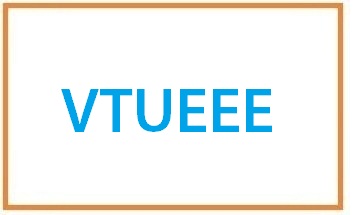VTUEEE Syllabus includes the topics/subjects a candidate needs to study in order to excel in the exam. Candidates preparing for VTUEEE examination should be familiar with the syllabus so that they can plan an effective strategy to crack the exam. They can also align their exam preparation with the exam pattern to get positive results in the engineering entrance exam. The syllabus provides the candidates an insight into the key areas where they need to focus more on.
The questions in the exam will be asked from the subjects Physics, Chemistry, and Mathematics respectively. The syllabus will be available in the prospectus also. However, those who have opted for online mode of the exam can go through the syllabus given here. Since the VTUEEE Syllabus is quite vast, therefore, students should start their preparation in advance.
VTUEEE Syllabus
It is highly recommended to the candidates to go through the VTUEEE exam pattern and make an effective exam strategy based on the exam pattern and the syllabus prescribed by the authority. Since the exam will be computer-based, students will get four choices out of which only one will be correct. The syllabus will typically be based on the level of class 11th and 12th. Here are the topics that the students should prepare to succeed in the VTU engineering entrance exam–
Physics
Physics and measurement, kinematics, laws of motion, work, energy and power, rotational motion, gravitation, properties of solids and liquids, thermodynamics, kinetic theory of gases, oscillations and waves, electrostatics, current electricity, magnetic effects of current and magnetism, EMI and alternating current, electromagnetic waves, optics, dual nature of matter and radiation, atoms and nuclei, electronic device, communication system.
Chemistry
Some basic concepts of chemistry, states of matter, atomic structure, chemical bonding and molecular structure, chemical thermodynamics, solutions, equilibrium, Redox reaction and electrochemistry, chemical kinetics, surface chemistry, classification of elements and periodicity in properties, general principles and processes of isolation of metals, hydrogen, S-block elements, P-block elements, D and F block elements, co-ordination compounds, environmental chemistry, purification and characterization of organic compounds, some basic principles of organic chemistry, hydrocarbon, organic compounds containing hydrogen, organic compounds containing oxygen, organic compounds containing nitrogen, polymers, Biomolecules, principles related to practical chemistry.
Mathematics
Sets, relations and functions, complex number, matrices and determinants, mathematical induction, permutation and combination, binomial theorem and its applications, sequence and series, limits, continuity and differentiability, integral calculus, different calculus, co-ordinate geometry, 3D geometry, vector algebra, statistics and probability, trigonometry, and mathematical reasoning.




